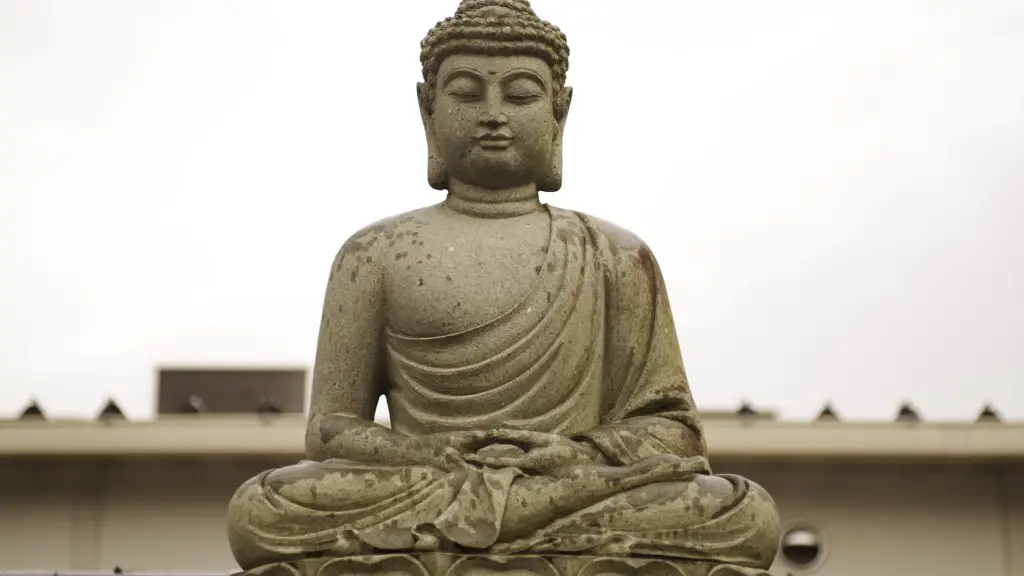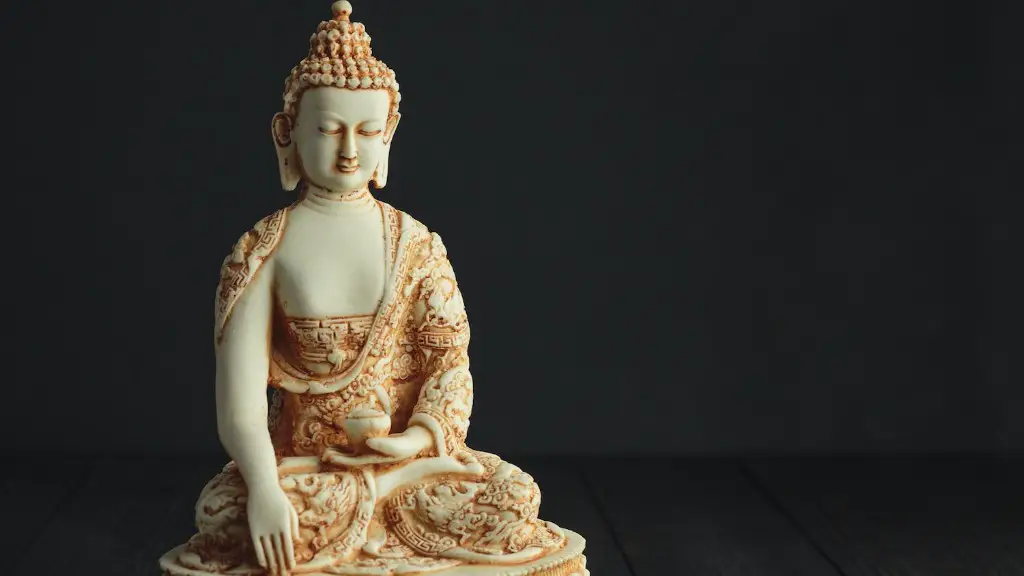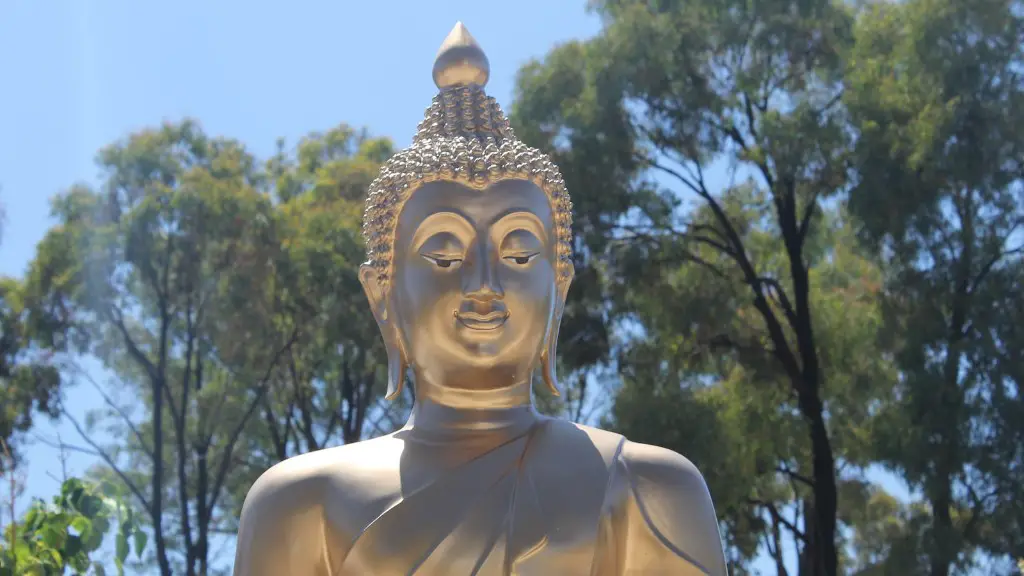Buddhism is a religion that was founded by Siddhartha Gautama in the fifth century BCE. Siddhartha Gautama was born into a wealthy family in what is now Nepal. He lived a life of luxury until, at the age of 29, he had a life-changing experience in which he saw the suffering of all people. He then devoted himself to finding a way to end suffering. He studied with different religious teachers, but he was not satisfied with their answers. He then went off into the forest to meditate. After six years of meditation, he finally achieved enlightenment and became the Buddha.
The Buddha then devoted the rest of his life to teaching others the way to end their suffering. The heart of Buddhism is the Four Noble Truths, which are that all life is suffering, that suffering is caused by craving, that suffering can be ended by ceasing to crave, and that there is a path to the cessation of craving.
Buddhism teaches that the way to end suffering is to let go of attachment.
What is the main point of Buddhism?
Buddhists believe that human life is a cycle of suffering and rebirth. However, if one achieves a state of enlightenment (nirvana), it is possible to escape this cycle forever. Siddhartha Gautama was the first person to reach this state of enlightenment and was, and is still today, known as the Buddha.
Buddhism is a religion that is based on the teachings of Siddhartha Gautama. The main principles of this belief system are karma, rebirth, and impermanence.
Karma is the belief that our actions have consequences, and that our current situation is a result of our past actions. Rebirth is the belief that after we die, our soul is reborn into another body. Impermanence is the belief that nothing in life is permanent, and that everything is constantly changing.
Why do Buddhist not believe in god
Buddhism is a tradition focused on spiritual liberation, not theistic religion. The Buddha himself rejected the idea of a creator god, and Buddhist philosophers have even argued that belief in an eternal god is nothing but a distraction for humans seeking enlightenment.
The Four Noble Truths are the cornerstone of the Buddhist teachings. They are the truth of suffering, the truth of the cause of suffering, the truth of the end of suffering, and the truth of the path that leads to the end of suffering. More simply put, suffering exists; it has a cause; it has an end; and it has a cause to bring about its end.
The Four Noble Truths are not simply a philosophical abstraction. They are a practical guide to understanding and overcoming the suffering that is an inherent part of life. By understanding the nature of suffering, we can see that it is possible to end suffering. And by following the Noble Eightfold Path, we can achieve that goal.
What is Buddhism vs Christianity?
There are inherent and fundamental differences between Buddhism and Christianity. Christianity is at its core monotheistic and relies on a God as a Creator, while Buddhism is generally non-theistic and rejects the notion of a Creator God. This difference is significant because it means that Christianity relies on divine values for the world, while Buddhism does not.
Buddhist teaching views life and death as a continuum, believing that consciousness (the spirit) continues after death and may be reborn. Death can be an opportunity for liberation from the cycle of life, death and rebirth.
Is Buddhism a faith or religion?
Buddhism is one of the oldest religions in the world. It was founded by Siddhartha Gautama, also known as the Buddha, over 2,500 years ago in India. With almost 470 million followers worldwide, it is one of the major religions of the world.
Buddhism teaches that the way to end suffering is to end our attachment to the things that cause us to suffer. This can be done by following the Noble Eightfold Path, which includes right understanding, right thought, right speech, right action, right livelihood, right effort, right mindfulness, and right concentration.
If you are interested in learning more about Buddhism, there are many resources available online and in libraries. There are also Buddhist temples and centers around the world where you can meet other Buddhists and learn more about the religion.
Buddhism teaches that alcohol and drugs can cause carelessness and should be avoided. Strong Buddhist beliefs would be expected to have a significant impact on alcohol use.
Does Buddhism believe in karma
Buddhists believe that karma has implications beyond this life. Bad actions in a previous life can follow a person into their next life and cause bad effects (which Westerners are more likely to interpret as ‘bad luck’). Even an Enlightened One is not exempt from the effects of past karma.
Atheism is often considered acceptable within Hinduism, Jainism and Buddhism in India. Atheism is a valid form of belief in Hinduism. Among the six fundamental Astika schools of Hindu philosophy, the Samkhya do not accept God and the early Mimamsa also rejected the notion of God.
What do Buddhists pray for?
Buddhist prayers are not so much about asking for things from the divine beings that are being prayed to, but rather about invoking the enlightened qualities of our own hearts and minds. In order to do this, we must let go of the ego’s resistance to humility. By humbleingly connecting with the buddhas, bodhisattvas, and spiritual masters, we can remember our own divine potential and work towards actualizing it.
Buddhism does not subscribe to this view. Instead, it teaches that the root cause of all suffering is ignorance, and that it is possible to transcend this suffering through the practice of Dharma. There is no notion of a personal God who bestows grace or who punishes sinners in Buddhism. Rather, it is each individual’s responsibility to work towards their own liberation.
What is forbidden in Buddhism
The precepts are basic guidelines for living a moral and ethical life according to Buddhist teachings. They are meant to help practitioners develop their mind and character so that they can progress on the path to enlightenment. The precepts include commitments to abstain from killing living beings, stealing, sexual misconduct, lying and intoxication.
Buddhists believe in the cycle of samsara, which is the cycle of birth, life, death and rebirth. This means that people will experience suffering many times over. All of the things a person goes through in life cause suffering and they cannot do anything about it. Instead, they have to accept that it is there.
How do Buddhists worship?
Buddhists worship at temples or monasteries as a way to meditate and pray. Some Buddhists also set up shrines in their homes as a way to worship privately. When worshipping, Buddhists offer fresh flowers, lights, and lamps, or burn fragrant incense at shrines with images of the Buddha. These acts are done as a way to pay respect to the Buddha and to make merit for the devotee.
The idea of karma is central to Buddhist belief, but it is often misunderstood. People often think of karma as a kind of divine justice, whereby good actions are rewarded and bad actions punished. This is not the case. In Buddhism, there is no concept of punishment or reward and there is no divine being who decides who goes to hell or heaven. There is merely the illusory results of our thought, words and deeds, which we call karma.
Do Buddhists get along with Christians
Christians and Buddhists have completely different beliefs about God, creation, and salvation. Christians believe in one God who created the world and offers salvation to those who believe in him. Buddhists believe in reincarnation, enlightenment, and nirvana. These beliefs are not compatible at all.
There is historical evidence that suggests Jesus was aware of Buddhism, as both he and Buddhism were present in Judea during the same time period. It is possible that Jesus may have even had exposure to Buddhist teachings and ideas, given the close proximity of the two religions. However, there is no definitive proof that Jesus had any direct knowledge of Buddhism.
Conclusion
There is no one answer to this question as Buddhism is a complex religion with many different schools of thought. Generally speaking, however, the goal of Buddhism is to achieve Nirvana, which is a state of perfect peace and enlightenment. In order to reach Nirvana, Buddhists must follow the Eightfold Path, which is a set of guidelines that teach them how to live a moral and ethical life.
Buddhism is a religion that teaches people how to live in a way that will bring them happiness. It is a religion that is based on the belief that all beings have the same ability to attain enlightenment. Buddhism teaches that the way to achieve enlightenment is through following the Noble Eightfold Path.




